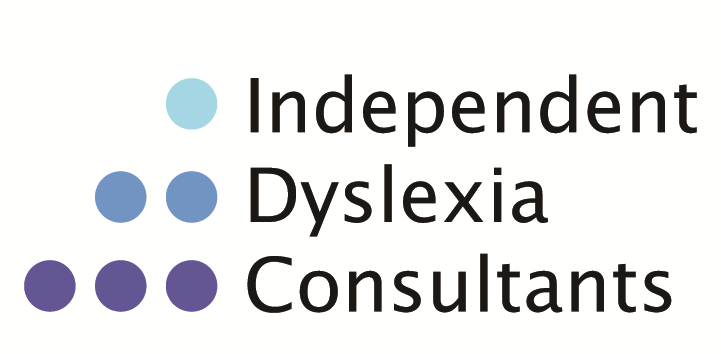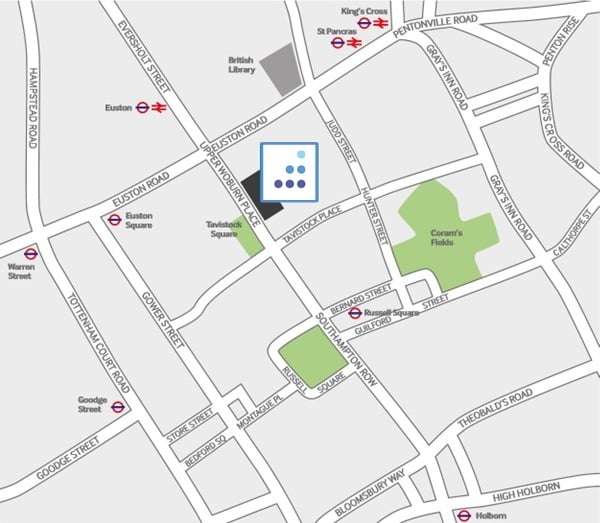
Fifth Floor Tavistock House
Tavistock Square
London WC1H 9HX
020 7388 8744 & 020 7383 3724
info@dyslexia-idc.org
Our focus is in developing an individual's skills and abilities to enable them to become more successful.
Services include consultancy, tuition, coaching and assessment.
We provide a wide range of services for education and the workplace, including awareness training.
Our Philosophy
We aim to enable people (both children and adults) to become successful in education, employment and in life generally.
We take a lifespan approach to dyslexia and other syndromes viewing them as much more than an educational matters.
Background
IDC (formerly the Adult Dyslexia and Skills Development Centre) was established in 1993, and has an excellent reputation.
We have assessed, coached and trained thousands of individuals, from all ages and occupations – from Architects to Zoologists. We have worked on a consultancy basis for government agencies, a large number of other organisations, universities, colleges and schools.
Formal Assessment
A diagnostic assessment is a process of explanation. Our psychologists do not just test for dyslexia. The aim is to show what individuals are capable of, establish whether they are performing at expected levels, and determining if any cognitive weaknesses might account for inconsistencies.
Potential is established by the administration of a measure of intellectual ability that includes verbal and non-verbal tests. We use the Wechsler Scales. Performance is determined by tests of reading, including accuracy and comprehension, measures of writing and spelling, as well as maths. An analysis of the cognitive profile, as well as separate tests of memory and processing provide an explanation for inconsistencies. Essentially, we adopt the Profile of Strengths and Weaknesses (PSW) approach. The strengths provide a rationale for the development of strategies that address the weaknesses.
At the conclusion of the assessment verbal feedback and advice are provided. This is followed up by a written report that can help access support and adjustments in educational and work settings.
Training and Coaching
Both the structure and content of courses offered are flexible, which allows us to focus on the particular priorities of the individual or establishment. We can adapt any programme to meet the requests of employers and employees. If the current course list does not quite meet your needs, we can work with you to develop one that targets the issues you wish to address.
We provide the following range of courses:
- Continuing Professional Development courses for psychologists, HR personnel, managers and trainers. These are designed to upgrade skills in assessing dyslexia, understanding it and the difficulties faced by dyslexic employees, making adjustments and enabling dyslexic employees to become more successful.
- Awareness Raising courses and briefings which can include an explanation of what dyslexia is and how it can affect individuals; an outline of the skills and abilities of dyslexic people, presenting strategies for both individuals and managers to make adjustments and overcome problems in the workplace.
- Skill Development courses, including Strategies for Success (a short course designed to improve employees’ performance through skill development); Stepping Stones to Success (for people who are unemployed, designed to provide the necessary skills and confidence for finding work); Top up IT training and Creative Strategies Workshops.
- Training for Work course, run on a one-to-one basis and designed to develop skills for specific individuals. Each programme is prepared in collaboration with the client, and ideally in discussion with their manager or supervisor.
- Work skills evaluations, designed to ensure that the skills of the individual meet the job requirement, and that the dyslexic employee is able to work efficiently. We recommend specific skills training, advise on technological aids that may improve performance, and make recommendations for adjustments, either to the work environment or to the job role.
Although we always aim to support the dyslexic individual, we will assist them to work only in a job that is right for them through informal career counselling.
Please call us on 020 7388 8744 or email info@dyslexia-idc.org for further information on our services.
David is a registered Educational and Occupational Psychologist who provides diagnostic assessments for people of all ages, including children. He also provides career guidance for adolescents and adults. He is a Professor of Professional Practice at the University of Buckingham, and has acted as an advisor to the British Dyslexia Association. David is a regular contributor to national and international dyslexia conferences and publications, and is the principal author of ‘Adult Dyslexia: Assessment, Counselling and Training’ (Whurr, 1994) and co-author of ‘The Adult Dyslexic: Interventions and Outcomes’ (Whurr, 2002), as well as McLoughlin, D. & Leather, C.A. (2013) The Adult Dyslexic: Interventions and Outcomes. An Evidence-based Approach. London: BPS Blackwell.
Carol Leather BA Hons, PGCE, DipSpld, AMBDA, APC SpLD, Ph.D
Carol directs the educational and training activities at Independent Dyslexia Consultants. She has particular expertise in providing advice to dyslexic individuals in the workplace and to their employers and trainers. Carol conducts one-to-one workplace skills sessions and workplace assessments. She provides consultancy work, advising on provision of services, policy and reasonable adjustments. Carol is a contributor to national and international dyslexia conferences and publications, and is co-author of ‘The Adult Dyslexic: Interventions and Outcomes’ (Whurr, 2002), as well as McLoughlin, D. & Leather, C.A. (2013) The Adult Dyslexic: Interventions and Outcomes. An Evidence-based Approach. London: BPS Blackwell.
Rosalind Owens MSc, PGCE, C.Psychol
Rosalind is an Educational Psychologist who provides assessments for children, their parents and their teachers. In addition to her work with the Independent Dyslexia Consultants, she also visits schools and makes recommendations for interventions in education.
Alan Martin Ph.D. C.Psychol
Alan is Head of Psychology at Buckingham University and works as an associate with IDC providing diagnostic assessment for adults in Higher Education. Alan's interests also include other areas of educational research such as children's science learning and conceptual change. He collaborates with David on applied research, conference papers and publications.
Jane Myers MSc, MAC, EMCC
Jane is a qualified Performance Coach and Trainer, with a background in psychology, and over 18 years experience of training, coaching and mentoring. She has a niche understanding of how individuals process information and ultimately how to maximise on this for personal development and learning. Jane works in both business and sport, using coaching as a tool to improve performance, in a variety of contexts and a diverse range of issues.
Amanda Abbott-Jones BA Hons, MA, PGCE(FE), CertSpLD, MA/MScSpLD, EdD
Amanda works in supporting dyslexic higher education students with their cognitive and emotional learning needs. She received her doctorate in education focusing on dyslexia and its association with anxiety and social/emotional difficulties from University College London. She is author of ‘Dyslexia in Higher Education: Anxiety and Coping Skills’ (Cambridge University Press, 2022) and is currently writing a study skills strategies book titled ‘Cognitive and Emotional Study Strategies for Students with Dyslexia in Higher Education’ also to be published by Cambridge University Press.

IDC are located in Bloomsbury in Tavistock Square.
Fifth Floor Tavistock House
Tavistock Square
London WC1H 9HX
020 7388 8744 & 020 7383 3724
info@dyslexia-idc.org